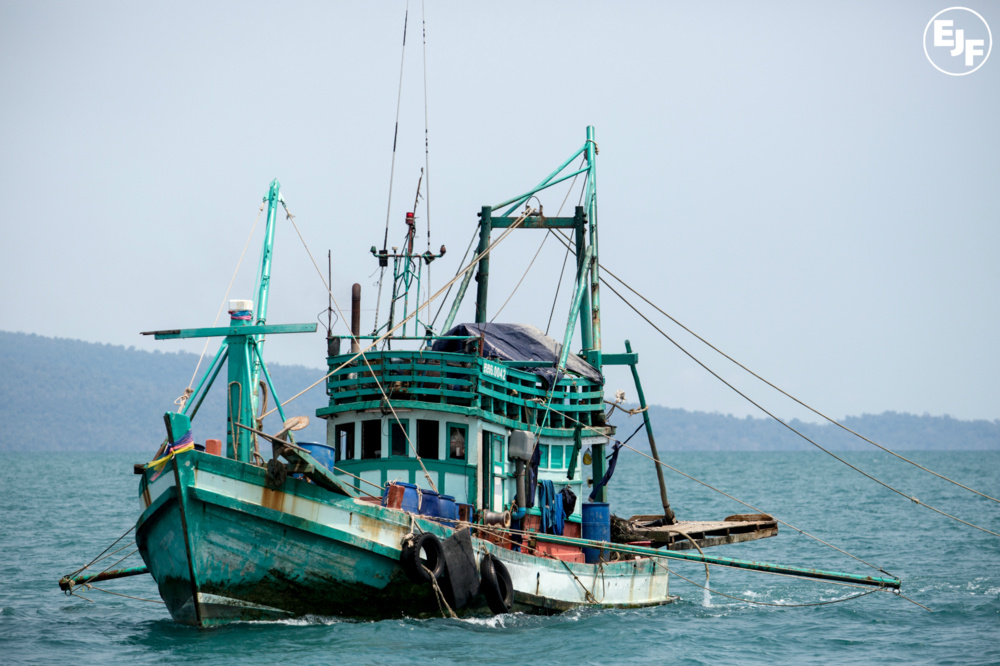
Building Ocean Health: Sharing experience to move towards sustainable fisheries management
A vast amount of the seafood that makes its way onto our plates is from Asia. In fact, 55% of global fish product comes from this region, making Asian countries vital players in the fight for a more sustainable seafood sector.
Today I am in in Seoul, Korea, where EJF, WWF and the Korean Ministry of Oceans and Fisheries, are set to co-host a conference aimed at boosting Asian regional collaboration in the fight against unsustainable and illegal fishing.
The conference will bring together officials from across the region – including South Korea, Thailand, Cambodia, Indonesia and Sri Lanka – to share knowledge, intelligence and best practice. This event comes at a crucial time.
Globally, our oceans are being pushed to the brink.
Around 30% of world fisheries are over exploited, with another 60% classed as fully exploited, and with pirate fishers left unchecked to plunder the seas with relative impunity, this problem can only get worse.
Illegal fishing practices already cost the global economy between US$10 and $23.5 billion annually. Pirate fishing is stealing food from the mouths of the world’s poorest and most vulnerable, who depend on the oceans for their diet and income.
Meanwhile, due to exhausted fish stocks, vessels are travelling further, often to fish illegally in other nations’ waters and are spending longer at sea. This has allowed for the hidden perpetration of severe human rights abuses including human trafficking, slave labour, intimidation, violence and even murder.
Over the last three years, EJF has seen first-hand the reality of illegal fishing in Asia. Our investigations in Thailand have uncovered and documented the systematic abuses that occur when nations fail to address the challenges facing their fisheries.
Thailand is the world’s third largest exporter of seafood, but its waters are some of the most over-fished on the planet, and failing to address the abuses that blight its seafood sector has left the Thai Government facing mounting international criticism.
Despite moves to tackle the challenges facing its fisheries, illegal fishing and the resultant abuses remain commonplace. Thailand has received a ‘yellow card’ warning from the European Union in line with its regulation to combat illegal fishing, and it remains on Tier 2 – next to worst – on the US State Department’s Trafficking in Person’s Report.
Meanwhile, in the wake of receiving its own EU ‘yellow card’, the Korean Government has enacted new legislation to curb illegal fishing, establishing greater control over all pirate vessels and increasing its ability to act when Korean nationals engage in illegal fishing activities outside the country’s geographical jurisdiction.
It is hoped that over the coming days, other Asian nations can learn from the Korean Government’s experience.
But more can and must be done.
And with illegal fishing extending beyond national borders, failure to tackle it in one country will undermine the efforts of others in the Asian region.
That’s why the Building Ocean Health Conference taking place today is so exciting.
Hosted by an Asian state, for Asian states, it represents a positive step towards greater collaboration across the region, and builds on similar moves, such as the joint ASEAN-SEAFDEC declaration to collaborate on combating illegal fishing, signed in August.
Aimed at developing a dialogue to create a deeper understanding of the steps needed to achieve long-term sustainable fisheries, and consider what regional initiatives could work to deter illegal fishing, we hope today’s conference will help promote greater fisheries governance both across Asia and globally.
SIGN UP FOR OUR EMAILS AND STAY UP TO DATE WITH EJF